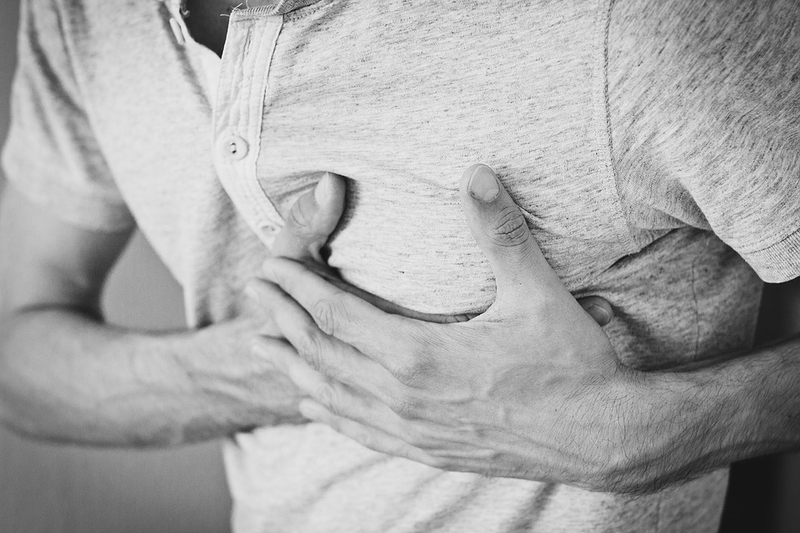A feeling of tightness in the chest can be indicative of something as minor as a cold or as severe as the start of a heart attack or a punctured lung. It can also be a symptom associated with chronic diseases such as asthma, chronic pulmonary obstructive disorder (COPD) or an after effect of quitting smoking. And shortness of breath often occurs in heart and lung-related illnesses, such as anemia, hyperventilation, obesity, pulmonary edema and more. However, when both chest tightness & shortness of breath happen at the same time, the diagnosis can become much clearer.

What Causes Both Chest Tightness and Shortness of Breath?
Asthma
As a chronic illness that affects 1 in 12 people according to the Centers for Disease Control and Prevention, asthma impacts how air flows in and out of your lungs. In people with asthma, the bronchial tubes in their lungs are always inflamed. The airway becomes even more aggravated when they get triggered by something such as an allergen, smoke, cold air, or stress. One of the main symptoms of asthma is chest tightness & shortness of breath. Others include wheezing and coughing.
Asthma is typically diagnosed using lung function tests, which measures your lung size, air flow and how well oxygen moves in and out of the blood. Allergy tests can help determine what may trigger your asthma. Making sure you have a plan for when you have an asthma attack can help prevent symptoms from getting out of hand.
There is no cure for asthma, but its symptoms can be managed and controlled. Inhalers with corticosteroids can help reduce inflammation. Certain oral medications can also help keep the airways as calm as possible. Severe asthma attacks may need to be treated in the hospital with IV steroids so that they can take effect more quickly than inhalers.
Heart Attack
One of the signature symptoms of a heart attack is tightness in the chest - this starts when a part of the heart is not getting enough blood. While the symptoms have a sudden onset, heart attack is often the end result of years of heart disease where fatty plaques build up in the vessels and then break off and block blood flow. Heart attacks can also be the result of a spasm of the coronary artery, which cuts off blood supply to the heart. This is called an ischemia, and can occur in people without any history of heart disease.
Along with chest tightness, shortness of breath, pain in the left arm, constant sweating, tiredness, dizziness and indigestion are some common symptoms of a heart attack. However, symptoms can be different in women. Women can have a heart attack without experiencing any chest tightness or shortness of breath. Symptoms more common in women include lightheadedness, fainting and extreme fatigue.
Heart attacks are an emergency and if you feel like you’re experiencing one, you must call 911 or go to the emergency room. Treatments include blood thinning medications that break up clots or a procedure where a catheter is inserted into the blood vessel to break up the plaque.
Anxiety/Panic Attack
The chest discomfort caused by anxiety can feel like pressure or fullness in the chest or torso, along with stabbing pain or a burning sensation. The symptoms can come either before, during or after a panic or anxiety attack. The symptom is the body’s response to stress, and one of these responses is muscles tightening. Other accompanying symptoms include digestive upset, nausea, excessive sweating, shaking and difficulty concentrating.
These symptoms closely mirror those of a heart attack, and if you’ve never had a panic or anxiety attack before, you may think you’re having a heart attack. Seeking medical attention can help you get treatment right away and learn the difference between the two.
When the chest discomfort is a result of anxiety, the symptoms will typically resolve on their own once the anxiety dissipates. However, anti-anxiety medications or other sedatives can relieve anxiety more quickly. Seeking therapy can help you better prepare yourself for anxiety attacks, prevent them or make them less severe.
View All Comments /Add Comment